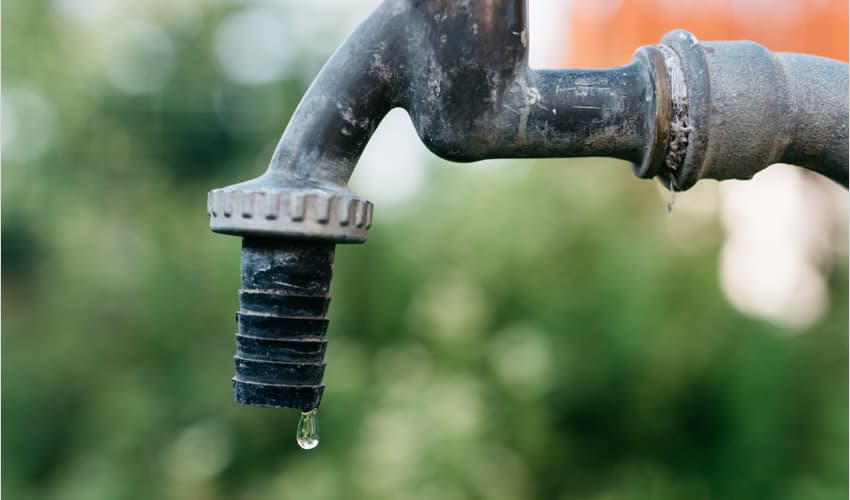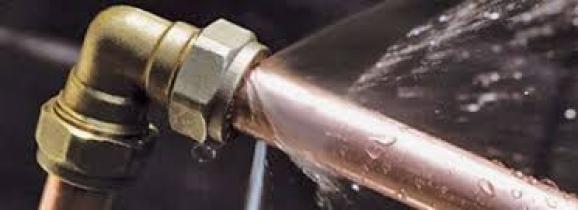This post following next about How to detect water leaks in your home is without a doubt attention-grabbing. Give it a go and draw your own assumptions.

Leakages not just trigger waste of water but can additionally trigger unneeded damages to your house as well as advertise unwanted organic growth. By looking and also understanding for day-to-day situations that trigger leakages, you can safeguard your residence from future leaks as well as unneeded damages.
Instant temperature adjustments.
Severe temperature modifications in our pipelines can create them to increase and acquire suddenly. This development and also tightening might cause cracks in the pipelines, particularly if the temperature are below freezing. It would be best if you watched on exactly how your plumbing works. The existence of the previously stated situations frequently shows a high danger.
Rusty water systems
As time passes by, your plumbing system ages as well as deterioration such as corrosion may start eating away the pipes. This may be the source of staining or bending on your water pipes. This calls for an assessment with your plumber immediately. Consider changing the pipelines considering that they are at a higher risk of corrosion than the more recent versions if our plumbing system is old.
Defective Pipe Joints
Pipeline joints can deteriorate over time, resulting in water leakages. If you have loud pipelines that make ticking or banging sounds, particularly when the hot water is turned on, your pipe joints are possibly under a whole lot of stress.
Trespassing roots
Most water leakages start outside the house as opposed to inside it. If you observe an unexpected decrease in water stress, say in your tap, require time to go out and also examine your yard. You could notice wet spots or sinkholes in your lawn, and that could imply that tree roots are getting into water lines creating water to permeate out. You can have your plumber look for intrusion, particularly if you have trees or bushes near your property.
Poor Water Connectors
At times, a leak can be triggered by loosened tubes and pipes that supply your devices. In instance of a water links leak, you might observe water running directly from the supply line or pools around your home appliances.
Blocked Drains
Clogged drains pipes could be irritating and inconveniencing, yet they can often end up creating an overflow bring about rupture pipes. Maintain removing any kind of materials that might go down your drains pipes that could block them to stay clear of such inconveniences.
All the above are reasons for leaks yet not all water leaks arise from plumbing leakages; some leaks might originate from roof leakages. All leakages must be repaired promptly to prevent water damage.
Leakages not just cause waste of water but can also cause unneeded damages to your house as well as promote unwanted natural development. By looking and recognizing for day-to-day scenarios that trigger leaks, you can safeguard your home from future leaks as well as unnecessary damages. Today, we will look at six leakage triggers that may be causing your pipes to drip.
At times, a leak can be created by loose hoses and also pipes that provide your home appliances. In case of a water links leakage, you may observe water running directly from the supply line or puddles around your devices.
Tell-Tale Signs of a Water Leak
The Sound of Running Water
If you’re hearing water running, your first step should be to check your faucets, toilet valves, and outdoor spigots. If everything if status quo, take an exact reading of your water meter and don’t use the water for a few hours. Then, take another meter reading. If there has been no change, that means water is not running (and maybe it’s time to have your hearing checked!). If the reading has changed, however, this indicates that water is indeed flowing and you most likely have a leak.
Wet or Damp Floors
You’re walking across your carpet and suddenly squish—your sock is soaked! The dog doesn’t look guilty and your child swears they didn’t spill anything. That means you’re likely looking at sewer leakage. Now, it’s easy to just soak it up with a towel and call it a day; however, this won’t stop the leak. Ignoring the problem allows moisture to build up, ultimately causing mold or mildew. Not only is this smelly, it can be very toxic and harmful to children, the elderly, pets, and those with weak immune systems. Don’t risk the health of your home and your family—call in a professional to take care of the problem.
Foul Odors
If there’s an unpleasant smell in your home and you can’t locate the source, don’t just light a candle or spray some Febreze. Funky smells are often due to mold and mildew, which spread fast under ideal conditions (optimal temperature and level of humidity). Growth begins within about 24-48 hours, and spores start to colonize in 3-12 days, becoming visible to the eye within about 18 days. If you think the odor is leak-related, get a plumber out as soon as possible to mitigate damage from rapid fungi growth (and rid your home of the foul odor).
Overgrowth in the Lawn
Unless you didn’t fertilize your lawn evenly, a lush patch of grass in a select area of your lawn, or concentrated wet spots, indicate pipe leakage which is acting as a fertilizer. Left untreated, hazardous bacteria in the underground waste will quickly turn into a messy situation, going from lush growth to lawn destruction.
Wall Cracks
Over time, even the littlest of leaks can cause cracks in the foundation of your home and compromise the entire structure. How does it happen? The leak continues hammering away at the same spot in the ground beneath your home, eventually causing it to shift slightly. Now, you’d never feel this shift, but your walls will. This can be a very dangerous situation, so if you’re seeing vertical or diagonal cracking in your walls it’s best to call a plumber right away.
https://www.expresssewer.com/blog/6-telltale-signs-of-a-water-leak-in-your-home

Hopefully you liked our excerpt on How to detect water leaks in your home. Thank you for taking time to read through our posting. Remember to set aside a second to share this write-up if you enjoyed reading it. Thanks so much for going through it.
For quick relief, contact!